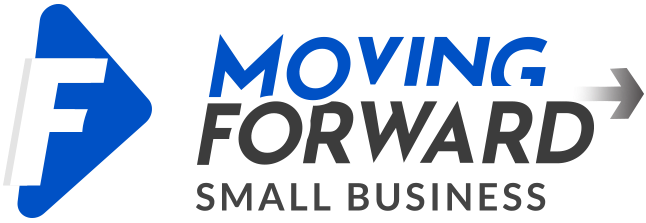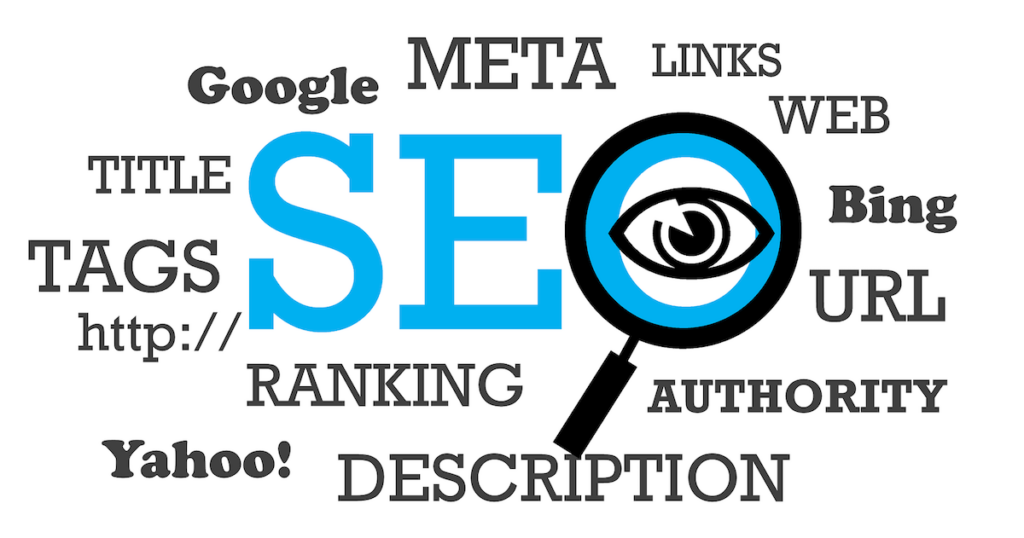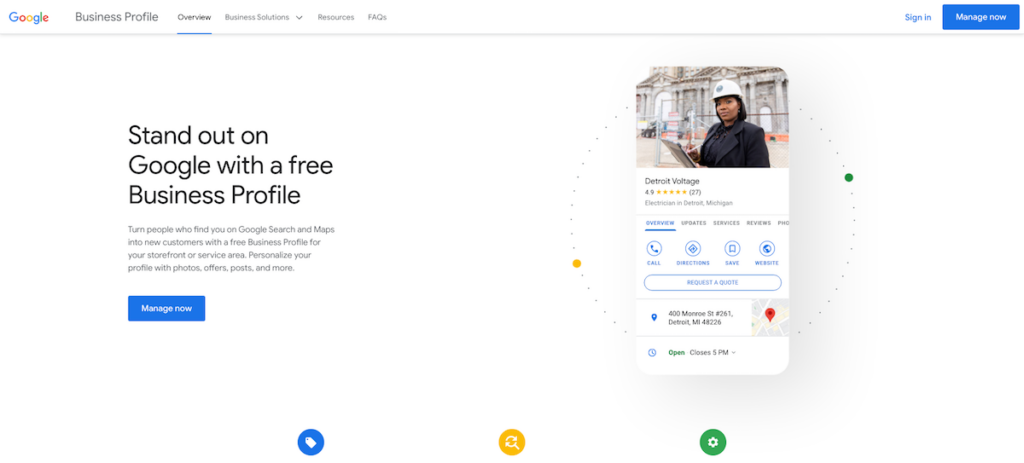Since the advent of Google, search engine optimization (SEO) has been an increasingly important part of starting and running a successful business online. You may have heard that you need to optimize your website in order to show up on search results, but where do you start? Here are the top five things you need to consider when getting started with SEO for your small business.
Understand What SEO Is (And What It Isn’t)
Search Engine Optimization (SEO) is an important part of any small business owner’s marketing strategy. SEO helps your website rank higher in Google search results, allowing more potential customers to find you. It involves optimizing your web pages to make them more attractive to search engines and your target audience. SEO can help drive traffic to your website and increase your sales.
It is important to note that SEO is not a one-size-fits-all solution. While SEO can drive more traffic to your website, it is not a magic bullet that will suddenly boost your sales. SEO is an ongoing process that requires target keywords, keyword research, website optimization, link building, and other SEO tips and tricks. In order to maximize your SEO performance, you should create an SEO strategy and conduct regular website audits and site speed tests. Additionally, small business owners should also create a Google Business Profile, set up Google Analytics, and use the Google Search Console. All of these elements can help ensure your website is visible in Google search results and can attract more potential customers.
By understanding the basics of SEO and taking the necessary steps to optimize their website, small business owners can ensure their website is seen by more potential customers and generate more revenue.
1) Set Up and Optimize Google Business Profile and Other Tools
Setting up and optimizing a Google Business Profile is an essential step for small business owners looking to get started with SEO. This profile will help to increase your visibility in Google search results and make it easier for potential customers to find you.
When setting up your Google Business Profile, include key information about your business, including the name, address, phone number, website URL, hours of operation, and a description of your product or service. Also, be sure to use target keywords from your keyword research in both your description and other places throughout your profile.
Once you have created your Google Business Profile, use it to optimize your SEO strategy further. Use it as a platform to link back to your web page, which can help boost your SEO performance. Additionally, use Google Analytics and the Google Search Console to monitor your SEO performance. You can also run a website audit to identify areas that need improvements, such as page speed and link building.
By setting up and optimizing a Google Business Profile, small business owners can improve their local SEO and enhance their presence in Google search results. With the right strategy and optimization efforts, small business owners can get more visibility, attract more potential customers, and improve their overall SEO performance.
2) Do Keyword Research
One of the most essential SEO basics for small business owners is keyword research. This process helps you to identify target keywords related to your product or service that potential customers are searching for in Google search results. It’s an important part of any small business SEO strategy, as these keywords should be used throughout your web page content, titles, meta descriptions, and other on-page elements.
When doing keyword research, it’s important to understand how users think when they are looking for your products or services. Use tools such as Google Search Console and Google Analytics to analyze trends in user searches. You can also use tools such as Google Ads Keyword Planner to help you find relevant keywords and gain insight into their popularity and competition.
3) Optimize Your Website Content
When it comes to SEO for small businesses, optimizing website content is one of the most important steps you can take. By incorporating your target keywords into web page titles, URLs, page content, and meta descriptions, you’ll be able to better position your product or service in Google search results and increase your SEO performance.
Start by using keyword research to identify the best phrases for your small business SEO strategy. Once you have a list of target keywords, you’ll need to incorporate them into the web pages of your website. If necessary, this will involve writing new content and ensuring the existing content is optimized for search engines.
When writing and optimizing website content, ensure it’s clear and concise. Keep in mind that potential customers are looking for quick answers, so use words and phrases that are easy to understand.
Another key factor when optimizing website content is ensuring that your pages load quickly. Slow loading times can hurt your SEO performance, so consider doing a website audit to measure site speed.
Finally, don’t forget to link to other pages within your website. This helps with local SEO and can provide an additional boost to your SEO performance.
By following these SEO tips and leveraging your Google Business Profile and Google Search Console, you can optimize your website content to attract more potential customers. Additionally, monitoring your SEO performance with Google Analytics can help you measure and adjust your small business SEO strategy as needed.
4) Promote Your Website Through Link Building
Link building is an important part of any small business SEO strategy. Link building involves creating links from other websites to your own web pages in order to increase the visibility of your product or service to potential customers. This can be done in a variety of ways, including guest blogging, broken link building, and content outreach.
Guest blogging is when you post an article on another website in order to gain visibility for your own website. It is important to choose websites that are relevant to your target keywords in order to get the most benefit from this link-building strategy.
Broken link building is when you search out to websites that have broken links related to your target keywords and then offer to create a replacement page that includes a link back to your website.
Content outreach is when you contact other website owners to see if they are interested in publishing content that you have created. In exchange for their permission to use the content, you can offer to include a link to your website.
Link building is a powerful SEO tool for small business owners. It can help your website rank higher in Google search results and improve the overall SEO performance of your website. It is important to monitor your link-building efforts and track the results with Google Analytics and Google Search Console.
5) Monitor Your Progress
As a small business owner, you must monitor your SEO performance to ensure that your hard work is paying off. While search engine optimization is an ongoing process, it’s important to measure your progress to ensure that you are heading in the right direction. Here are some key metrics you should be tracking:
1. Target Keywords: Evaluate which target keywords are driving the most traffic to your website. You can use keyword research tools like Google Keyword Planner to identify which keywords are bringing the most visitors and potential customers to your site.
2. Google Search Results: Track how your web pages rank for specific keywords on Google Search Results. This will help you understand how well your SEO strategy is working.
3. Google Business Profile: Monitor your Google Business Profile’s performance and how potential customers interact with it.
4. Site Speed: Test your website speed using a tool like GTmetrix and make sure that it’s loading quickly for visitors.
5. Google Analytics: Review your website analytics regularly to understand how many visitors are coming to your website and what they’re doing on it.
6. Google Search Console: Check your website audit and performance metrics on the Google Search Console dashboard to see what changes need to be made to improve your website’s SEO performance.
7. Local SEO: Monitor your local SEO performance by keeping track of your listing rankings in search engine results and customer reviews.
By tracking these metrics on a regular basis, you can better understand how well your SEO efforts are working and make adjustments accordingly. With the right SEO strategy, you can improve your website’s visibility and reach more potential customers.
Conclusion
As a small business owner, mastering SEO basics is essential for your business’s success. By understanding what SEO is (and isn’t), doing keyword research, optimizing your website content, promoting your website through link building, and monitoring your progress, you can effectively increase your website’s visibility in Google search results and reach potential customers. To ensure that you’re making the most of your SEO strategy, setting up and optimizing your Google Business Profile, using additional tools for your digital presence, and conducting regular website audits are crucial steps to take. Additionally, pay attention to site speed, local SEO, and Google Analytics/Search Console to maximize your SEO performance. By following these SEO tips, you can make sure that your small business stands out from the competition and is well-positioned for success in the future.








